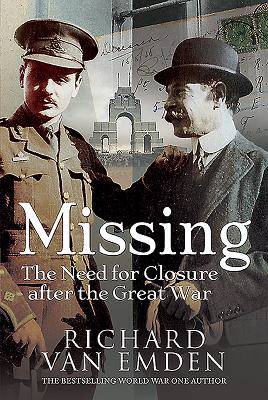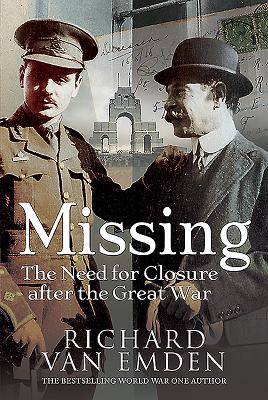
Je cadeautjes zeker op tijd in huis hebben voor de feestdagen? Kom langs in onze winkels en vind het perfecte geschenk!
- Afhalen na 1 uur in een winkel met voorraad
- Gratis thuislevering in België vanaf € 30
- Ruim aanbod met 7 miljoen producten
Je cadeautjes zeker op tijd in huis hebben voor de feestdagen? Kom langs in onze winkels en vind het perfecte geschenk!
- Afhalen na 1 uur in een winkel met voorraad
- Gratis thuislevering in België vanaf € 30
- Ruim aanbod met 7 miljoen producten
Zoeken
€ 27,95
+ 55 punten
Omschrijving
In May 1918, Angela and Leopold Mond received a knock on the front door. It was the postman and he was delivering the letter every family in the United Kingdom dreaded: the notification of a loved one's battlefield death, in their case the death in action of their eldest child, their son, Lieutenant Francis Mond.
The twenty-two year old Royal Flying Corps pilot, along with his Observer, Lieutenant Edgar Martyn, had been shot down over no man's land, both being killed instantly. If there was one crumb of comfort, it was the news that a brave Australian officer, Lieutenant A.H. Hill, had gone out under fire and recovered both bodies: there would, at the very least, be a grave to visit after the war.
And then, nothing. No further news was forthcoming. Angela Mond wrote to the Imperial War Graves Commission asking for further details but there was confusion. No one knew where Mond's and Martyn's bodies were buried. There had been an initial trail: both bodies had been taken to the village of Corbie and a lorry summoned to take them away, but from that last sighting both men had simply disappeared. 'It seems incredible that all traces of the burial of two officers duly identified, should be lost, ' wrote Angela to the authorities in December 1918.
And so began one of the most extraordinary private investigations undertaken in the aftermath of the Great War. Aged 48 and the mother of five children, Angela, a wealthy and well-connected socialite from London's West End, embarked on an exhaustive personal quest to find her son, an investigation that took her to the battlefields and cemeteries of France and into correspondence with literally hundreds of French civilians and British and German servicemen. In the meantime, as she searched, she bought the ground on which her son's plane had crashed and erected a private memorial to Francis, a memorial that still survives.
Angela's quest for her son is reflective of the wider yearning amongst those who lost loved ones in the Great War: the absolute need find a form of solace through the resolution of a search. More than 750,000 servicemen and women had been killed, half of whom had no known grave. After the Great War there were families who hunted for their missing sons for a decade or more and when no body was recovered, back doors were forever left unlocked just in case that son should one day return. Lieutenant Francis Mond's case was exceptional, perhaps unique in the circumstances of his death and subsequent disappearance, but the emotions behind the search for his body were shared by families all over the country.
The twenty-two year old Royal Flying Corps pilot, along with his Observer, Lieutenant Edgar Martyn, had been shot down over no man's land, both being killed instantly. If there was one crumb of comfort, it was the news that a brave Australian officer, Lieutenant A.H. Hill, had gone out under fire and recovered both bodies: there would, at the very least, be a grave to visit after the war.
And then, nothing. No further news was forthcoming. Angela Mond wrote to the Imperial War Graves Commission asking for further details but there was confusion. No one knew where Mond's and Martyn's bodies were buried. There had been an initial trail: both bodies had been taken to the village of Corbie and a lorry summoned to take them away, but from that last sighting both men had simply disappeared. 'It seems incredible that all traces of the burial of two officers duly identified, should be lost, ' wrote Angela to the authorities in December 1918.
And so began one of the most extraordinary private investigations undertaken in the aftermath of the Great War. Aged 48 and the mother of five children, Angela, a wealthy and well-connected socialite from London's West End, embarked on an exhaustive personal quest to find her son, an investigation that took her to the battlefields and cemeteries of France and into correspondence with literally hundreds of French civilians and British and German servicemen. In the meantime, as she searched, she bought the ground on which her son's plane had crashed and erected a private memorial to Francis, a memorial that still survives.
Angela's quest for her son is reflective of the wider yearning amongst those who lost loved ones in the Great War: the absolute need find a form of solace through the resolution of a search. More than 750,000 servicemen and women had been killed, half of whom had no known grave. After the Great War there were families who hunted for their missing sons for a decade or more and when no body was recovered, back doors were forever left unlocked just in case that son should one day return. Lieutenant Francis Mond's case was exceptional, perhaps unique in the circumstances of his death and subsequent disappearance, but the emotions behind the search for his body were shared by families all over the country.
Specificaties
Betrokkenen
- Auteur(s):
- Uitgeverij:
Inhoud
- Aantal bladzijden:
- 312
- Taal:
- Engels
Eigenschappen
- Productcode (EAN):
- 9781526760968
- Verschijningsdatum:
- 27/12/2019
- Uitvoering:
- Hardcover
- Formaat:
- Genaaid
- Afmetingen:
- 165 mm x 236 mm
- Gewicht:
- 748 g

Alleen bij Standaard Boekhandel
+ 55 punten op je klantenkaart van Standaard Boekhandel
Beoordelingen
We publiceren alleen reviews die voldoen aan de voorwaarden voor reviews. Bekijk onze voorwaarden voor reviews.









